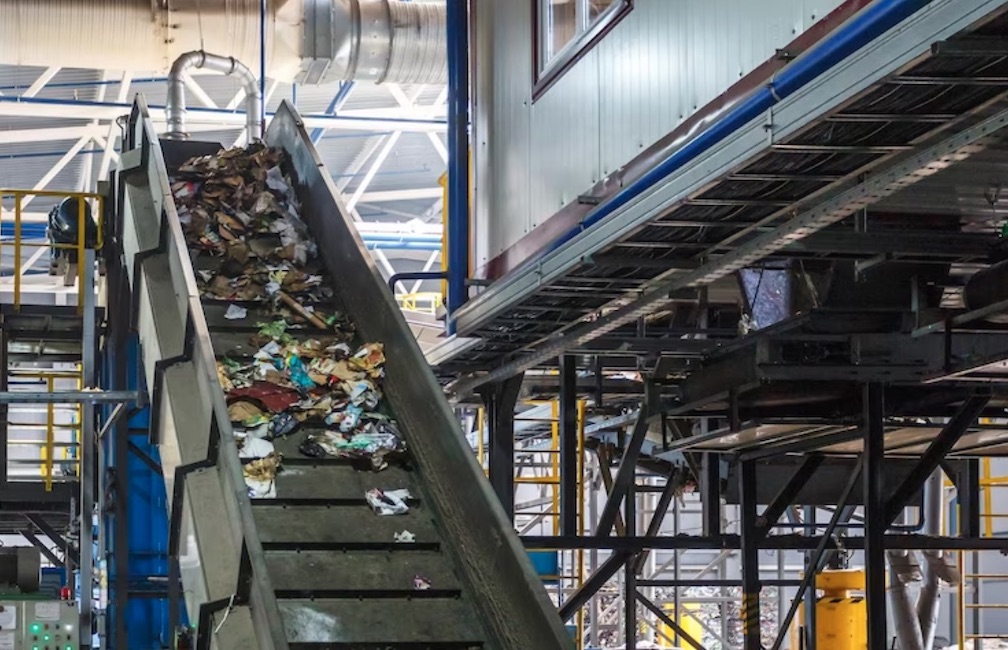Top Quality Waste Management Equipment: Improving Efficiency In Waste Disposal
- Written by Business Daily Media

Get the best Waste Management Equipment to improve efficiency in waste disposal. Experience quality, sustainability & smart waste solutions.
Waste management involves the collection, transportation, and disposal of garbage and other waste products. It includes activities related to recycling, composting, incinerating, and landfilling. Proper waste management facilitates sustainability, prevents pollution, and conserves resources
Need For Top-Quality Waste Management Equipment
The increasing waste volume necessitates top-quality waste management equipment. It's crucial for efficient waste processing, reducing environmental hazards, and promoting recycling. Proper waste management equipment enhances operational efficacy, ensuring long-term sustainability by minimizing waste accumulation and environmental impact.
Understanding Waste Management Equipment
Different Types of Waste Management Equipment
Waste management equipment varies based on the type of waste handled. It includes recycling machines, compactors, shredders, garbage trucks, and balers for solid waste. For hazardous waste, special containment and treatment equipment are used, ensuring waste is safely disposed of.
Role Of These Equipment in Waste Disposal
This equipment plays a critical role in waste disposal by ensuring efficient and environmentally-friendly waste management. They assist in sorting, compacting, recycling, and proper disposal of waste, minimizing environmental pollution and promoting sustainability. Therefore, they are essential in maintaining a clean and healthy environment.
Benefits Of Using Top Quality Waste Management Equipment
Increase In Efficiency
Technology advancements have significantly contributed to an increase in efficiency. Automation has streamlined inherent complexities involved in tasks, thus reducing time spent and eliminating errors. Such progress directly correlates to increased productivity, cost-effectiveness, and higher-quality output.
Reduction of Waste
Reduction of waste is crucial for environmental conservation. Employing methods such as recycling, reusing, and composting can significantly cut down waste. This not only aids in preserving natural resources but also mitigates pollution levels, promoting a healthier planet.
Improvement In Safety
Safety improvements have greatly reduced risk across various industries. Technological advancement especially has played a significant role, including the incorporation of automation and the use of wearable tech to monitor health in more hazardous jobs.
Environmental Responsibility
Environmental responsibility emphasizes the duty of every individual and organization to maintain a sustainable environment. This includes minimizing waste production, reducing carbon emissions, conserving natural resources, and promoting green technology to ultimately ensure the planet's longevity.
Cost-effective in Long Term
Investing in cost-effective measures like renewable energy or energy-efficient appliances may seem pricey initially. However, their durability and reduced utility bills make these investments worthwhile in the long term, resulting in significant budget savings and environmental benefits.
Key Top Quality Waste Management Equipment
Compactors
Compactors are industrial machines used to reduce the size of various materials through compaction. They are invaluable in waste management and recycling industries, enabling efficient disposal and processing. Compact design, robustness, and reliability are key features of these machines.
Balers and Shredders
Balers and shredders are crucial pieces of machinery in waste management. Balers compact waste materials into manageable bundles, aiding efficient recycling processes. Shredders, on the other hand, break down waste into smaller parts, expediting decomposition and further processing.
Garbage Trucks
Garbage trucks are essential vehicles for maintaining urban cleanliness. They collect waste from various locations, compact it, and transport it to landfills or recycling centers. Their advanced hydraulic systems and huge capacity optimize waste management, promoting a cleaner environment.
Recycling Systems
Recycling systems are integral for sustainable living, allowing for waste reduction. They classify and process discarded materials effectively, converting them into reusable resources. These systems significantly help in preserving natural resources, reducing pollution, and conserving energy.
Application Of High-Quality Equipment in Various Waste Disposal Methods
Landfills
Landfills are waste disposal sites where non-recyclable garbage is compacted and covered with soil. They serve as a critical part of urban sanitation, yet contribute to environmental challenges including air pollution, groundwater contamination, and greenhouse gas emissions.
Incineration
Incineration is a waste treatment process that involves the combustion of substances. It's an effective method to reduce the volume of waste materials and generate heat, which can be used to generate electricity. However, it can also produce harmful emissions, posing environmental concerns.
Recycling
Recycling plays a vital role in environmental protection. It conserves natural resources, saves energy, and reduces landfill waste. It also minimizes pollution caused by manufacturing new products. Embracing recycling is essential as it fosters sustainable living and preserves our planet.
Composting
Composting is a natural process that transforms organic waste into a nutrient-rich soil conditioner. It involves combining green and brown materials in precise ratios, promoting decomposition. Composting contributes to reducing landfill waste, improving soil fertility, and mitigating climate change.
Technological Advancements and Their Impact on Waste Management Equipment
Smart Waste Management System
A smart waste management system utilizes innovative technology for efficient trash disposal and recycling. It may include sensor-based sorting, waste level monitoring, and analytics to optimize waste collection routes, thus reducing costs and environmental impact.
AI And Robotics in Waste Sorting
AI and robotics are revolutionizing waste sorting, and optimizing recycling processes. Advanced sensing technology enables robots to quickly identify and separate materials. Meanwhile, AI-driven systems enhance efficiency, minimizing human error and significantly reducing environmental impact.
Gps And Fleet Management in Garbage Collection
GPS and fleet management revolutionize garbage collection by optimizing route planning, improving efficiency, reducing fuel waste, and enhancing worker safety. It provides real-time tracking, streamlines operations, and aids in predictive maintenance of the garbage collection fleet.










